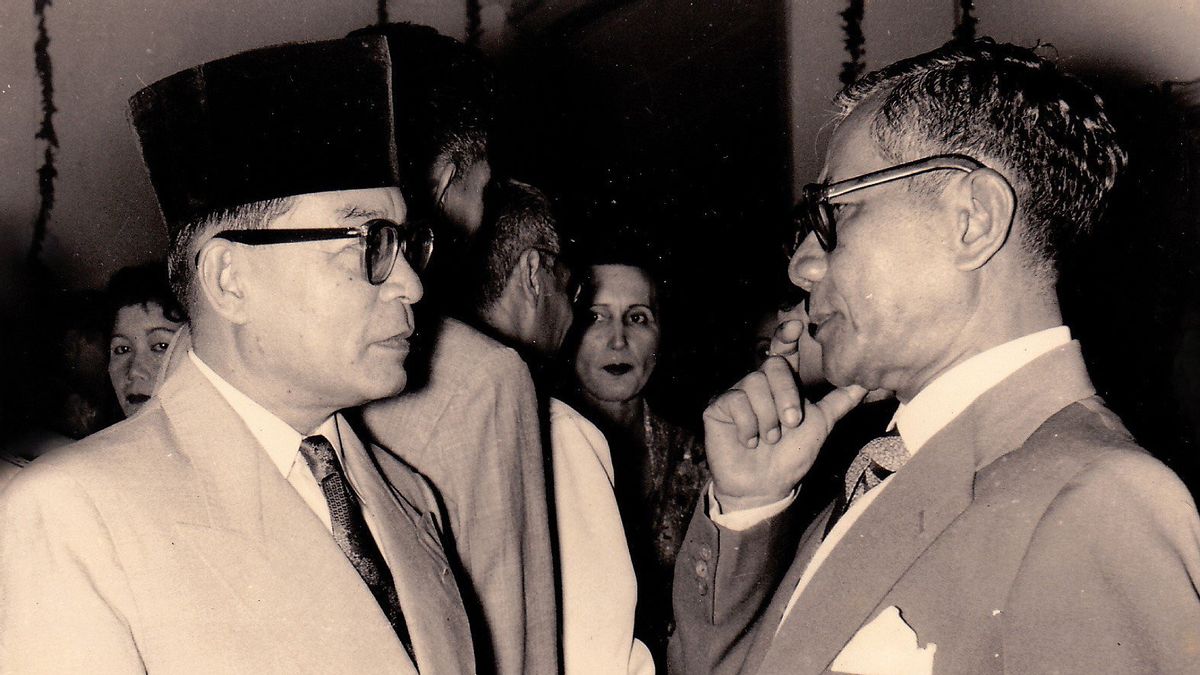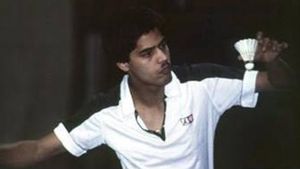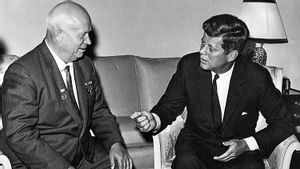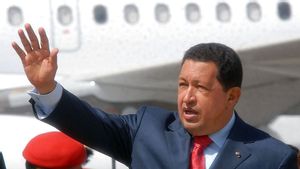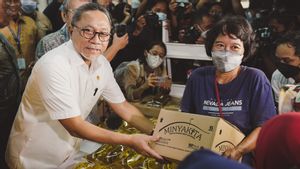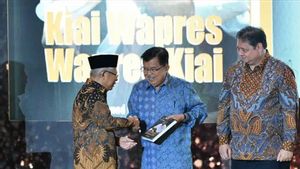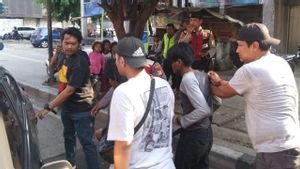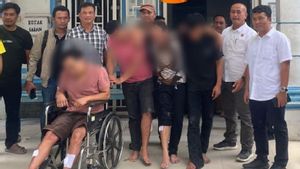JAKARTA - Good luck always accompanies Margono Djojohadikusumo's life in the Dutch colonial era. Margono was able to occupy sufficient positions as a colonial government employee. He was able to serve as an inspector at the People's Credit Bank.
This provision made Margono know the intricacies of the banking world. Margono's nationalism became even more widespread when Indonesia was independent. Margono insisted that Indonesia must have a central bank. Margono founded a bank. National Bank Indonesia (BNI), his name.
Margono Djojohadikusumo is one of the lucky Bumiputra groups. His family who came from priyayi became the estuary. The man who was born in Banyumas, May 16, 1894 was able to receive education in the school era for the natives was considered a luxury item.
Prabowo Subianto's grandfather also studied at the elite Europeansche Lagere School (ELS) Banyumas in 1900-1907. He enjoyed his school days. Every day he used his time to study. This condition builds his intellectuality.
Margono, who graduated from ELS, was immediately directed by his family to the State Employee Education School (OSVIA). The school selection was carried out so that in the future Margono, who is of priyayi descent, would not worry about work matters.
Once completed, Margono will be able to work as a civil servant in the Dutch East Indies. Great position too. He fills a position that makes many bumiputras jealous. He became an inspector at De Algemene Volkscrediet Bank (AVB): People's Credit Bank.
He worked to take care of providing credit to the people. The job he did with love. Penjajah kepincut. The Ministry of Prosperousism in the Netherlands even invited him to attend the International Cooperative Congress in Glasgow, Scotland.
His name was also famous among the Dutch. Queen Wilhelmina just gave him an award. As a form of appreciation, because Margono was able to help the Dutch increase the lives of the natives. However, all kinds of awards did not make Margono complacent.
He still maintains his rasalism. He was also sensitive to the suffering of the people because of colonialism.
Margono occupies a fairly high position at the level of the Dutch East Indies Government. Because of his services, Margono was awarded a Ridder in de Order van Oranjeini star in 1938 by Queen Wilhelmina. Although the Dutch East Indies amtenar, Margono has close association with nationalist figures, such as Tjipto Mangoenkoesoemo, Soetomo, Ki Hajar Dewantara, and Haji Agus Salim, "explained Rosihan Anwar in the book 'Petite Histoire' Indonesia Volume 6(2012).
Margono's existence during the Japanese colonial period was no less. He did work at the People's Credit Bank. However, Margono was not hard. He chose to work in Mangkunegara in Solo as Head of the Economic Affairs Agency.
The career made him represent Mangkunegara as a member of the Japanese-style people's representative, Chuo Sangi-In later become BPUPKI. Indonesia became independent on August 17, 1945. Margono then greeted him with joy and did not want to be dissolved in the euphoria of happiness.
He still sees that Indonesia still has many shortcomings. Even Indonesia does not yet have a central bank which supports trade traffic. Margono also has the idea of building a national bank. Because at that time no one had built a national bank. Other banks do exist but are still controlled by foreigners such as De Javasche Bank.
The idea was raised several times to government officials. However, he did not get a good response. Luckily Margono came to the Vice President of Indonesia, Mohammad Hatta. Hatta, who understands the ins and outs of economic affairs, gave his blessing to Margono to build a national bank.
A power of attorney was signed by Soekarno-Hatta in September 1945. A new problem arose. Funding to build a bank requires large funds. Margono did not want to expect to go to the state because Indonesia's need to maintain great independence.
He tried to touch a variety of entrepreneurs. The result was nil. Margono tried to issue a personal check of Rp. 100,000, Japanese money. The Bank Indonesia Central Foundation was built on October 5, 1945. Like a tit for Margono and then received assistance from a personal doctor Soekarno-Hatta, R. Suharto.
R. Suharto, who in fact is the Treasurer and Deputy Chairman of the Indonesian Independence Fonds, revealed that Margono could use the remaining funds. The Independence Fund itself is the money from the Indonesian people's saweran for an independent Indonesia. The money costs a lot. The meeting of national figures to the Proclamation of Indonesian Independence.
With the blessing of Bung Karno and Hatta, R. Suharto then provided Margono with assistance of Rp. 340 thousand, Japanese money from the pocket of the Independence Fonds. The money made Margono firmly present the Bank Indonesia Center. Margono runs everything with joy, alone.
He is looking for an office. He is also looking for an employee. He did not want the Indonesian people's money to be wasted. The name of the Bank Indonesia Center then changed to BNI on July 5, 1946. The name was only ratified in paripuna on August 17, 1946.
BNI also plays a big role as a bank. BNI is tasked with creating and distributing Oeang of the Republic of Indonesia (ORI). The role of BNI was only reduced and was no longer a central bank in 1968, then Bank Indonesia (formerly: Javasche Bank) was asked to be the central bank.
The presence of BNI is also evidence of Margono strengthening the banking system in Indonesia. For Margono's contribution, the Indonesian government has immortalized his name as the name of Jalan RM Margono Djojohadikusumo in Karet, Central Jakarta.
The issuance is mostly to equip people or groups of regional envoys who want to return to their area, to carry out various tasks and so on. The Indonesian Independence Fund also provides the first capital for the Bank Indonesia Central Foundation, which in the future develops into BNI. The first capital I submitted was Rp. 340 thousand, of course Japanese money.
"The establishment of the Bank Indonesia Center is based on the Government's announcement dated October 9, 1945, with the aim of centralizing the leadership and uniting the goals (coordinating) in the economic field and capital circulation, as well as giving the public the opportunity to exchange foreign money for money in force in Indonesia," said R. Suharto in the book Historical Witness (1984).
SEE ALSO:
The English, Chinese, Japanese, Arabic, and French versions are automatically generated by the AI. So there may still be inaccuracies in translating, please always see Indonesian as our main language. (system supported by DigitalSiber.id)
